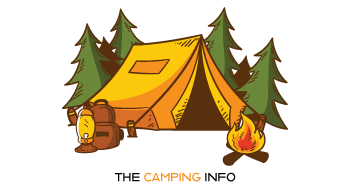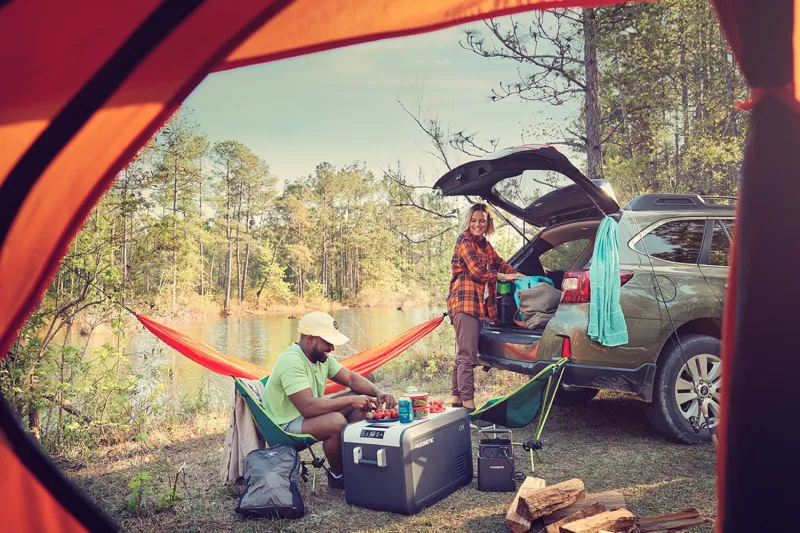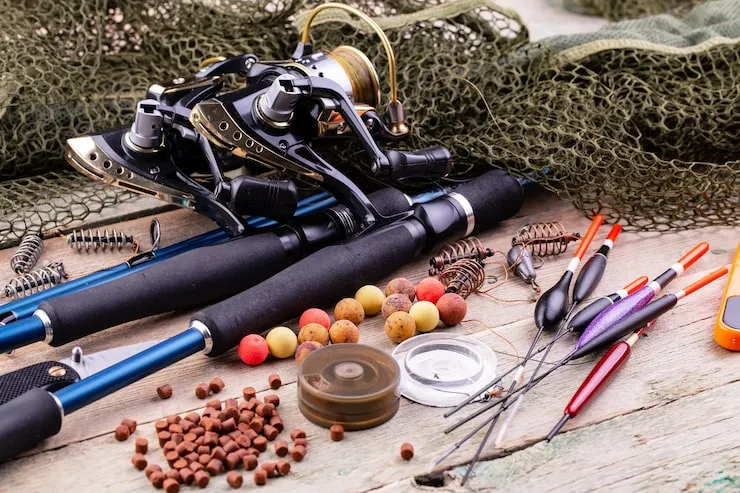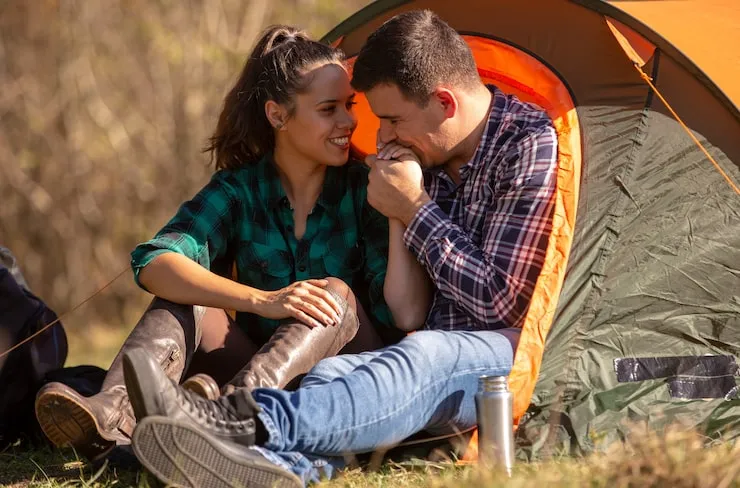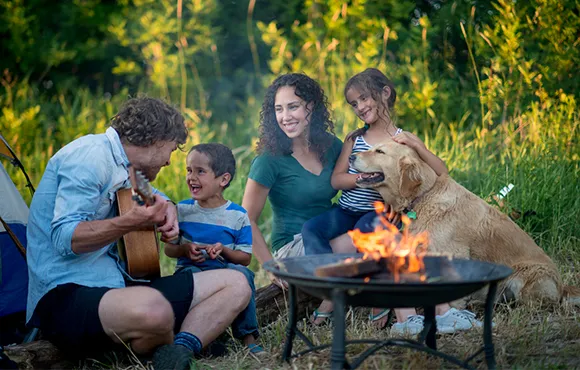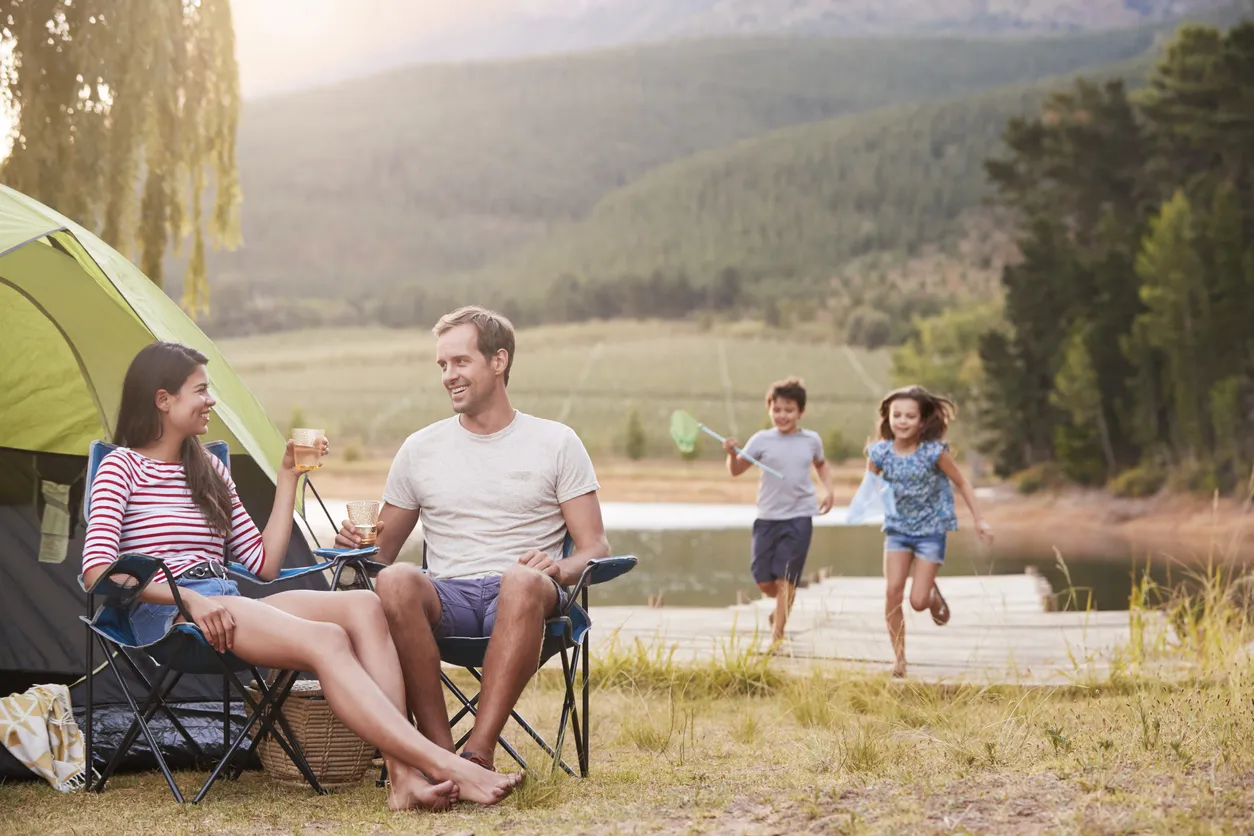A week in the great outdoors may be an incredible adventure, but if you don't have the proper camping equipment, it can turn into a stressful camping vacation.
What you packed (or didn't pack) for the trip is typically the only element that determines whether your camping vacation was excellent or poor. Having the necessary camping equipment with you might make the difference between a fun vacation and one that is cut short. It's even more crucial to pack the necessities if you're camping with children.
We've created a necessary camping checklist that you should carry with you. Don't leave home without these ten camping necessities that our readers feel are vital for your next camping trip, regardless of your level of experience.
Essential Gear for a Memorable Camping Experience
1. A tent
Regardless of the type of camping trip you are on, you should always have a tent or other emergency shelter available, even if you like to sleep in a sleeping bag under the stars. A sudden snowfall or downpour might leave you soaked and vulnerable to hypothermia. You and your equipment can also be protected from strong winds by a tent or shelter.
Be sure to include all of your tent's accessories, such as stakes, cordage, tent poles, and a rain fly. Take your family camping. To ensure that everyone is comfortable, bring the nicest family tent you can.
2. A sleeping bag
At nighttime, temperatures might drop by 20 degrees or more. Additionally, bear in mind that a lot of insects are most active at night, and you can wake up to itchy bug bites.
Without a sleeping bag, you run the danger of exposure at worst and a miserable night's sleep at best. If you've ever attempted to take your kids camping, you are aware that they will sleep through the night if you don't have a kid's sleeping bag.
For a camping checklist and items designed especially for family camping outings, see our Guide to Camping With Kids. For people who have trouble falling asleep, think about getting an air mattress as well.
3. Water
One of the most crucial camping necessities is water, which appears to run out faster the farther you venture off the usual route.
Being stranded without access to clean water is the last thing any camper wants, especially because drinking from a lake, pond, or river may lead to major health problems because of germs. When camping or hiking, there are several ways to filter the water. Have a few alternatives available.
Make sure you have enough water for everyone, even if you're vehicle camping and at a designated campground. When camping, budget at least two liters of water per person each day.
4. Pocket Knife with Fire Starter
Without a cozy, roaring bonfire, camping isn't camping, so you'll need the equipment to build one as soon as possible.
One of the most crucial camping necessities to keep you safe in the event of a sudden downpour or a dip in temperature is a fire starter.
There are many different ways to start a campfire, but you may use matches or a lighter. Having two fire starters on hand is a good idea in case one fails.
Additionally, bring a little amount of kindling in a waterproof container, such as newspaper strips or dry bark. It might be difficult to locate dry kindling when you need it.
Don't forget to include a pocket knife on your camping list. The best multifunctional outdoor tool is the pocket knife.
Rope trimming, fishing line cutting, bait chopping, cheese or sausage slicing, opening a securely sealed container, sharpening a stick, removing tangled vines, tightening a screw, and skinning small animals are all possible with a knife. Such activities are almost difficult without a knife. You should anticipate feeling frustrated—and frequently—if you forget your knife at home.
5. A First Aid Kit

Although it is rare that you will get a life-threatening accident while camping, blisters that need to be bandaged can occur even after a strenuous day of trekking, which is why we have included a first-aid kit in our list of needs.
Keep bandages and antiseptic on hand since minor cuts and scrapes can get infections if they are not treated. Other essentials like scissors, gauze, glue, soap, a CPR mouth barrier, and an emergency whistle should also be in your first aid bag.
Don't forget to include bottles of bug repellant and sunscreen. More rapidly than any injury, sunburn and insect bites may ruin your trip.
6. A camp stove
Among your camping necessities and must-haves is a camping stove. It allows you to cook in the bush or even at your campground. Additionally, remember to bring along additional cooking supplies including pots and pans, cooking utensils, and fuel.
Developing a lightweight, portable camp kitchen that makes preparing and serving meals at the campground effortless can elevate your next camping excursion.
Our guide, How to Choose the Best Camping Stove, can help you make the proper decision if you don't already have one.
7. Compass and Map
Don't leave home without a map and compass if your camping vacation schedule includes hiking in isolated locations. Another great addition is a GPS gadget.
Hikers may become confused due to constant shifts in the sun's position, which can make woodland landmarks appear strange. Sometimes unprepared campers have been lost for days in the woods before being rescued or returning to camp.
It's serious business to get lost or trapped in a forested region, especially if there isn't much water available. Make sure your children have a safe way to get back, even if they only wish to go to the closest creek from your campground.
